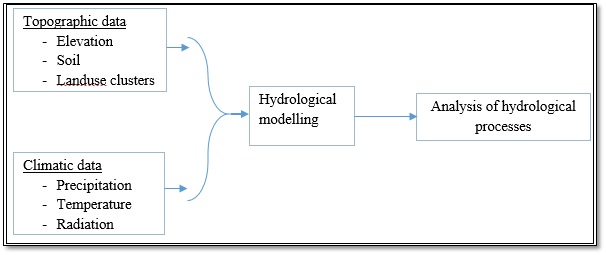Influence of River Basin Morphology and Climate Change on Water Partitioning in Semi-Arid River Basins
Phoebe Pauline Onjira – Hector Fellow Franz Nestmann
In diesem Projekt geht es darum, den Einfluss der Flussgebietsmorphologie (Landnutzung, Gelände und Boden) und des Klimawandels auf die Wasserflüsse in semiarider Umgebung zu analysieren. Der Klimawandel und die Veränderungen in der Landnutzung haben zu einer Verschiebung der Wasserverteilung und der Trägerströme geführt. Dieses Projekt wird im Kontext des Integrated Water Governance Support System Project im Fluss Lepelle in Südafrika durchgeführt. Das Ziel ist es, ein innovatives Wassermanagement-System zu entwickeln und zu testen.
Increased anthropogenic activities and climate change are causing a global shift in patterns of water fluxes. Semi-arid river basins are characterized by more water stresses, extreme and sporadic climatic events, and have been projected to worsen in many regions under the influence of climate change. Identification of the dominant morphological aspects and their influence on water fluxes are necessary for water resources planning, improvement of modelling approaches, characterization of hydrological response patterns and their subsequent influence on ecosystem and energy flows.
This research supervised by Prof. Dr.-Ing. Franz Nestmann aims to identify the role of river basin morphology (landuse, terrain and soils) and climate change on variations in water partitioning. A hydraulic model is used in this study to characterize water partitioning under the influence of landuse and climatic and identification of dominant morphological factors that cause variation in water partitioning. The model is set-up using a new calibration approach to improve on water balancing. Historical and future climate data are used as the model forcing to quantify hydrological impacts of climate change. This project is undertaken within the context of Integrated Water Governance Support System Project in the Olifants River Basin (South Africa). The objective of the project is to develop and test an innovative water governance system based on new techniques for easing water stress and sustainably managing water resources.

Schematic diagram of research flow
Phoebe Pauline Onjira
Karlsruher Institut für TechnologieBetreut durch

Franz Nestmann
IngenieurwesenHector Fellow seit 2009

